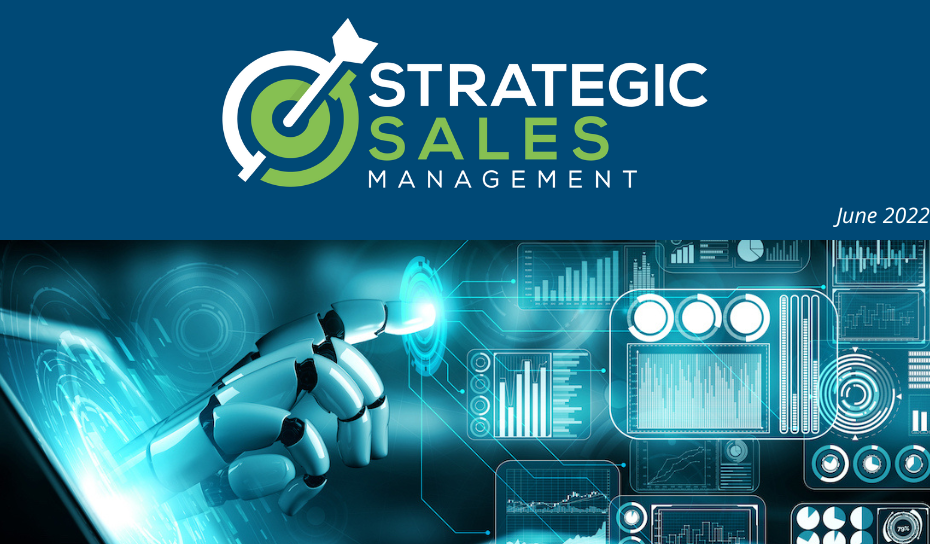Artificial Intelligence in Sales: How AI is Changing the Future of Sales
Make it easy. Make it work. And make it right. These critical imperatives could easily be the customer service mantra of many business professionals – including sales reps and sales leaders. They can also sum up the goals, benefits, and evolving impact of artificial intelligence (AI) in sales. But as AI continues to spread its influence on the buyer’s journey, what does the role of AI in sales look like – and what does the future of AI hold for sales processes and for sales organizations as a whole? Consider the following:
What is Artificial Intelligence?
Simply put, Artificial Intelligence (AI) is the simulation of human-like intelligence, including patterns of thought and predictable action, via software, by machines – most commonly computers and/or connected computer systems. With AI, these machines utilize large data sets and also may continuously “learn” from direct interaction with human users or operators, to predictively simplify, enhance, automate, and/or accelerate the interactive experience. Advanced search engines, recommendation systems, predictive text, voice recognition and response tools, self-driving cars, and other similar technologies use some level of artificial intelligence.
Artificial Intelligence in the Sales Process
Artificial intelligence is already making it possible for sales organizations to develop and utilize adaptive sales processes to simplify and enhance the buying experience. Regarding how AI is changing sales, the Harvard Business Review reports that “companies that have pioneered the use of AI in sales rave about the impact, which includes” a 50+% “increase in leads and appointments…” as well as “cost reductions of 40%–60%, and call time reductions of 60%–70%.”
- Specifically, sales automation and AI productivity using the machine learning capabilities and functionality of AI can benefit sales in these areas (and many more):
- Integrating with various media and focused platforms to optimize buyer awareness of products, services, and alternatives
- Lead generation, putting interested prospects directly into the pipeline
- Qualifying and ranking prospects via intelligent lead scoring using large data sets from multiple sources, both historical and real-time
- Generating expert recommendations regarding prospect targeting, optimal sales methods, pricing, cross-selling, and upselling opportunities and timing
- Improved depth and accuracy of leading and lagging sales forecasting indicators for more effective and strategic sales initiatives.
- Increasing sales team efficiency and productivity by automating time-consuming tangential tasks that do not effectively leverage the selling skills of the salesperson
The Future of Sales
So, what will be the big-picture impact of artificial intelligence and automation on the sales industry? AI in sales is here to stay and will continue to expand as an influential component of the sales process. Why? Because AI can transform sales team responsibilities and make the sales process more effective and efficient. Does that mean that sales reps will become obsolete? Not at all. Despite the growing impact of AI on sales, significant sales job losses are unlikely. And although buyers will likely appreciate a more efficient and relevant sales process, they still tend to prefer engaging with a human being, especially in long-term B2B relationships. In this way, AI automation can actually enhance the role of the salesperson and the connection to the customer. How? By making it possible for sales professionals to spend more time doing what they do best: engaging with buyers as real people making real connections and providing real solutions. And there’s nothing artificial about that!

Sales Tip: Create & Communicate Your Unique Value Proposition
Does your organization have a clearly-defined value proposition that everyone understands? If not, your sales could be suffering.

